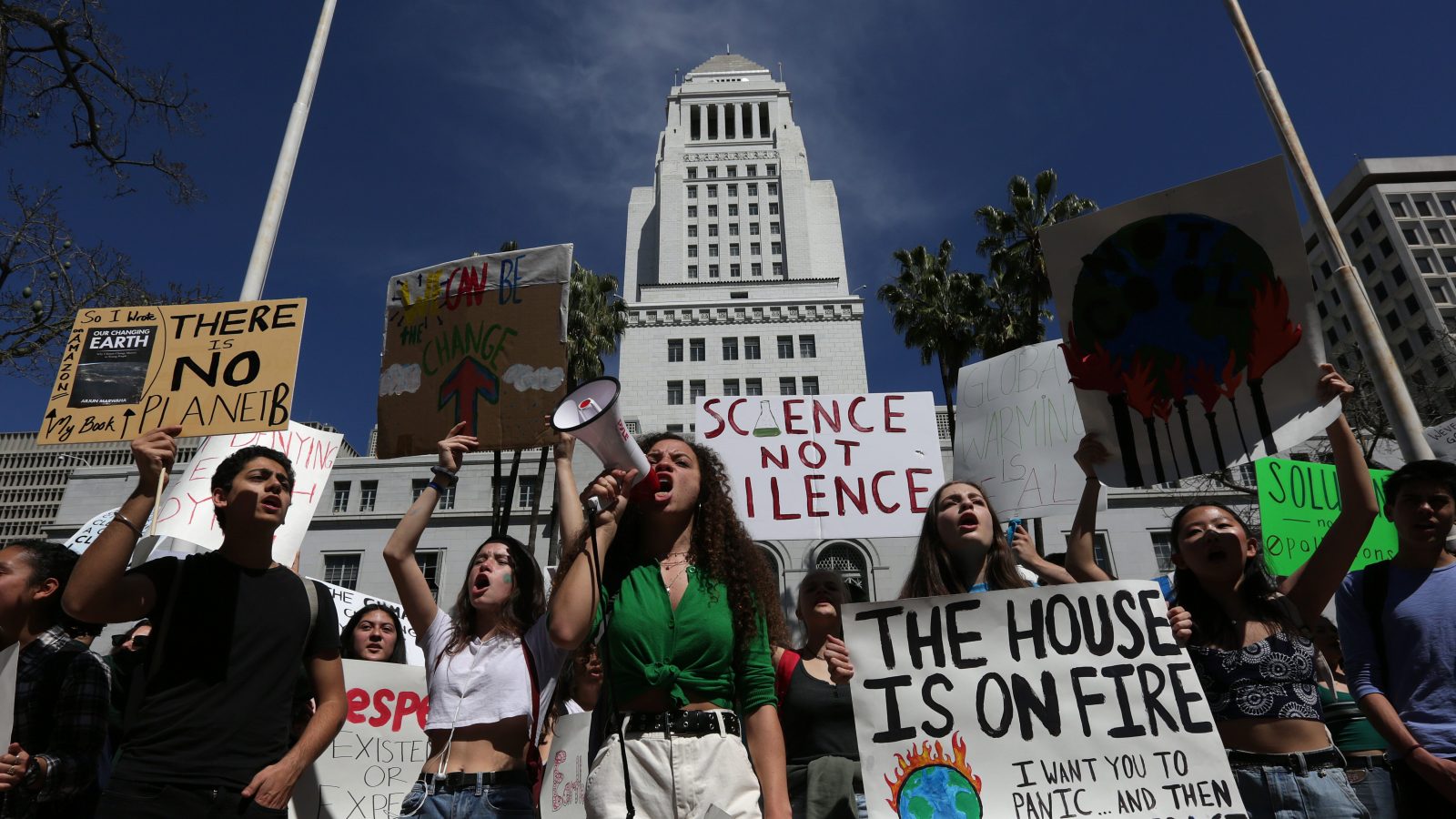This story was originally published by HuffPost and is reproduced here as part of the Climate Desk collaboration.
Los Angeles just launched its very own Green New Deal, setting up the second-largest city in the country to have a carbon-neutral economy by 2050.
“Politicians in Washington don’t have to look across the aisle in Congress to know what a Green New Deal is ― they can look across the country, to Los Angeles,” Mayor Eric Garcetti said in a statement Monday.
There is no greater threat to our security, to our economic growth, to the survival of future generations than #ClimateChange. I’m announcing #GreenNewDealLA to lay out an aggressive plan to not just survive global warming, but to ensure that L.A. thrives. https://t.co/YBsRwosu83 pic.twitter.com/7E3U3pO1G4
— Mayor Karen Bass (@MayorOfLA) April 30, 2019
The city’s Green New Deal is an aggressive expansion of the Sustainable City pLAn the mayor created in 2015 to reflect more recent environmental studies that have shown the need for rapid and more radical solutions to combat climate change.
Garcetti was among the handful of mayors and governors to stick with the Paris climate agreement after President Donald Trump pulled the U.S. out of the accord. The mayor said his Green New Deal unveiled Monday is partially driven by his commitment to uphold the Paris Agreement.
The city’s Green New Deal would require all new city-owned buildings and major renovations to be “all-electric,” effective immediately. The plan also hopes to phase out styrofoam and to plant 90,000 trees by 2021, and to end plastic straws and single-use containers by 2028.
The initiative also includes Los Angeles recycling 100 percent of its wastewater by 2035 and building a zero-carbon electricity grid with the goal of reaching an 80 percent renewable energy supply by 2036.
By 2050, the city hopes to create 400,000 green jobs, have every building become emissions-free and halt sending trash to landfills. By then, the city’s plan is expected to save more than 1,600 lives, 660 trips to the hospital and $16 billion in avoided health care expenses every year.
“With flames on our hillsides and floods in our streets, cities cannot wait another moment to confront the climate crisis with everything we’ve got,” Garcetti said. “L.A. is leading the charge, with a clear vision for protecting the environment and making our economy work for everyone.”
Los Angeles joins New York City, the country’s largest and most economically influential city, in working to create more localized climate initiatives as progressive Democratic lawmakers in Washington push for a national Green New Deal, led by Representative Alexandria Ocasio-Cortez (D-N.Y.) who introduced the resolution with Senator Ed Markey (D-Mass.) in February. New York City passed a historic bill on April 18 capping climate-changing pollution from big buildings and requiring massive cuts to greenhouse gases.
The L.A. City Council passed a motion earlier requiring the city to draft a Green New Deal plan to match Ocasio-Cortez and Markey’s resolution, which proposes increasing clean energy development, boosting electric vehicle manufacturing, and guaranteeing high-wage jobs fixing roads and rebuilding bridges.
The resolution in Congress is meant to be more of a guidance to eventually draft federal climate policy, but critics say that it’s a wish list of radical reforms. But the resolution does outline important steps for local leaders to take to combat climate change.
From 2017 to 2018, the number of cities pledging to use 100 percent renewable energy had doubled. More than a dozen states have passed or are considering setting 100 percent clean-electricity targets, according to a March report by consultant group EQ Research.
Some environmental groups, including the Sierra Club, applauded Garcetti for L.A.’s new initiative. But the city’s Sunrise Movement chapter said Monday that the plan will not do enough to combat climate change in time.
“Our generation’s future, as well as the future of Los Angeles and of the world, depends on us reaching net-zero greenhouse gas emissions by 2030. This is not a goal — it is a deadline,” the group said in a Medium post. “With Mayor Garcetti’s current plan for net-zero emissions by 2050, Los Angeles is on track to be 20 years too late. That is not a Green New Deal.”
The 🌍 needs to get to net zero emissions by 2050.
The 🇺🇸 needs to get there by 2030.
Los Angeles 🏙️ should be getting there even faster than that.
— Sunrise Movement LA 🌄 (@SunriseMvmtLA) April 30, 2019



